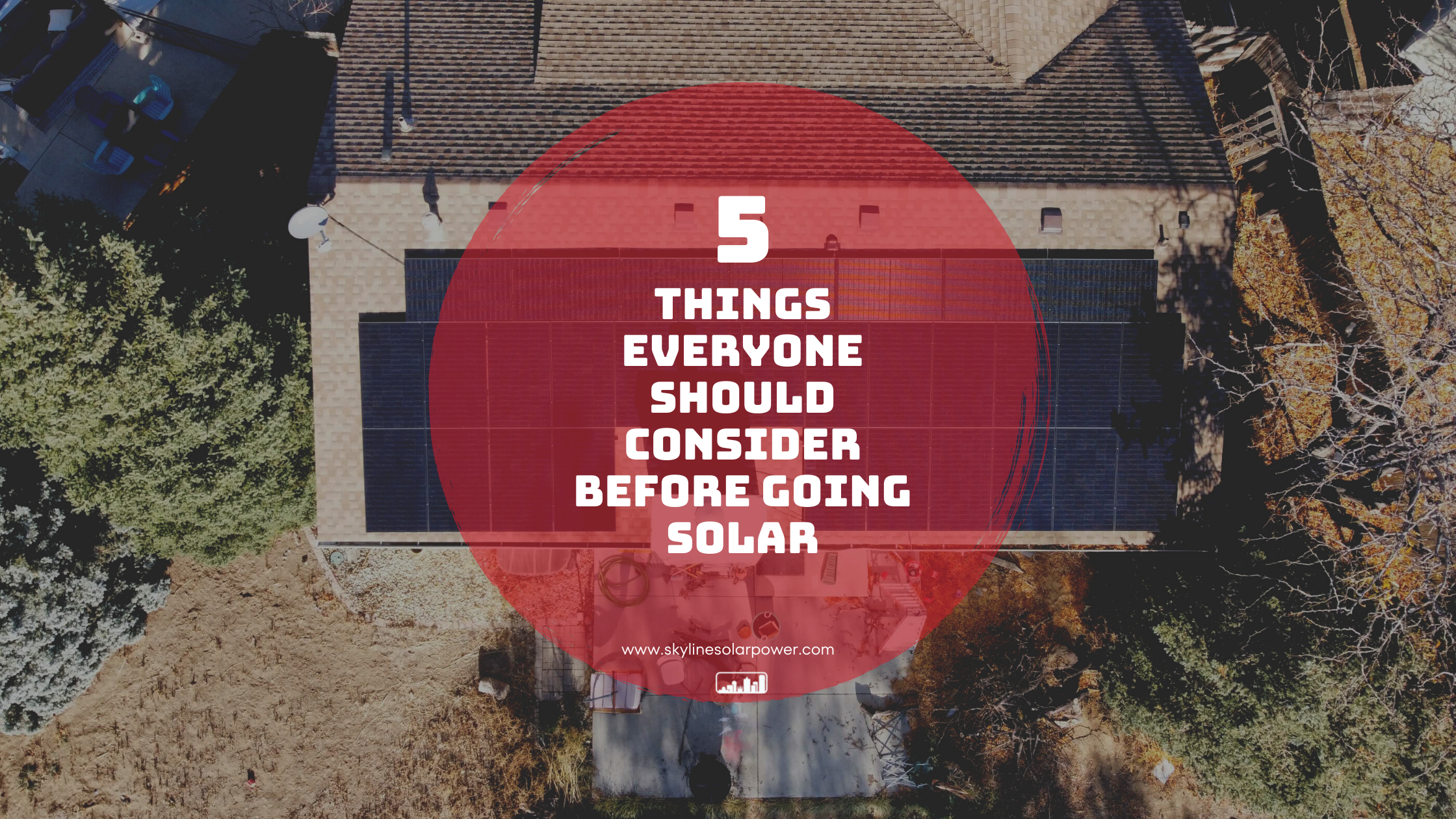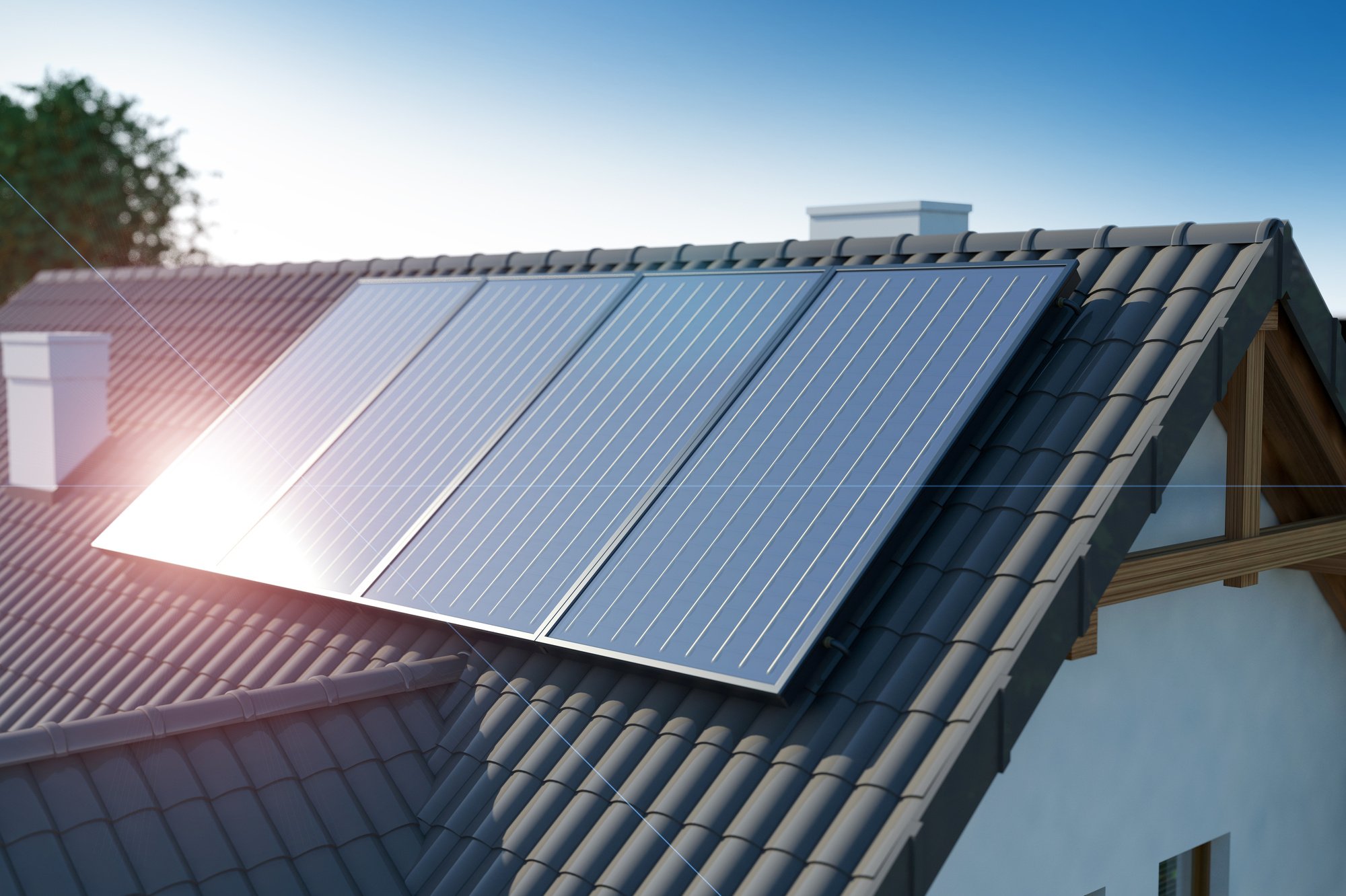5 Things to consider before adding solar panels to your home.

Millions of people have reaped the benefits of solar energy in the last decade. They enjoy helping the planet while also helping their bottom line. Regardless of the size of the system or how much it would save them, going solar is a big decision for every homeowner. This is your step by step guide to help smooth out the process, make more informed decisions, and when you choose to go solar, ensure you have the best experience possible.
1. How does solar work?
Although PV systems vary slightly from home to home, they all generally work the same way. Each piece of equipment plays a key role in making solar energy possible and practical:
Solar Panels: Rays from the sun cause a reaction in panels which creates an electric current. This power is currently in direct current (DC), it must be converted to Alternating Current (AC) in order to be used by most of the devices in your home.
Inverter: Direct current electricity comes through this device which converts the power from DC to AC so it is usable by devices and appliances in your home like your refrigerator, TV and Dryer.
Home Electricity Meter: This is an essential element to ensure the practicality of PV systems. Power generated from panels or stored in batteries is first used within your home. If your home is producing more than 100% of your home’s power needs it will run backwards as power is sent from your home to your neighbors and local businesses. Your power utility then compensates you for that power in the form of a credit on your power bill. Thus reducing or even eliminating your power bill completely.
2. What’s the Return on Investment?
Among homeowners considering using solar power in their homes among the first and most important questions to them revolves around getting a return on investment (ROI) from solar. The cost of many PV systems can easily exceed $30,000, so it is absolutely reasonable to expect some form of return on such an investment beyond general environmental benefits. Most people would agree that doing right by the planet is all well and good, but do not have the resources to give $30,000 in the name of environmentalism.
There are several perspectives which someone could view the ROI:
Owning vs. Renting Power
When someone has a power bill from the local utility company, they must pay that bill every month, at least if they want to keep the lights on. They must pay that bill every month no matter what as long as you need power.
When you are financing a PV system the electricity it generates is free and the panels and other equipment, whether it is paid off in cash or over 20 years, there is an end date when it will be paid off and will continue to produce free power.
Rising Energy Costs
Energy Costs are rising in the United States across the board. Based on a variety of factors the cost of producing, maintaining and delivering energy has the tendency to increase year over year. Based on data from Statista recording net year-on-year change in the price of electricity, the average change will be 2.4% annually.
Going solar is a way to mitigate the effects of inflating energy costs. When a homeowner chooses to finance their solar, they are able to select an affordable fixed cost to pay for their system. Regardless of whether the duration of their loan is 5 years or 20 years, they will pay the same fixed amount.
Over time as the difference between the fixed solar payment and variable power bill begins to widen, the return on investment will increase over the years.
3. What is the federal solar tax credit?
For many years, residential solar energy was a luxury reserved for the wealthy. In order to spur the industry, administrations within the federal government introduced a tax credit to ease the burden on homeowners with the desire to install solar photovoltaic panels on their home. Several years removed from the creation of the solar tax credit, the barrier to entry is much lower and it has become feasible for many homeowners before the credit is taken into consideration.
Many state and local governments have incentives for homeowners who choose to install renewable energy. It is often worth some internet research or a phone call to your local power utility to discover any incentives beyond the Federal Investment Tax Credit.
Disclaimer: The following is an overview of the federal solar tax credit, this is not professional tax advice or professional financial advice. Consult a qualified professional prior to making applicable financial decisions or entering into binding contracts.
How does it work?
A tax credit represents a dollar for dollar decrease in your tax liability. This differs from a tax deduction which decreases the amount of taxable income which determines how much you owe in taxes.
Here is an example of how the tax credit is calculated:
Cost of system X tax credit amount = Size of tax credit
$32,000 X 26% = $8,320
4. Looking for a quality solar installer
When you’re ready to begin your solar journey, there are several key factors that should be in front of mind.
- Ensure the team you’re working with has the experience to design and install the perfect system for your home. For instance, a team that is certified by the North American Board of Certified Energy Practitioners (NABCEP).
- Avoid being distracted by the allure of the lowest price. Focus on who brings the greatest value to you.
- If possible, look for a company with installation crews within a reasonable distance of your home. It is possible that crews may need to come back to your home after installation for maintenance of your system.
Get a customized Solar Design
Your provider will start with a custom solar design, you’ll want to speak with a home energy expert in person or over the phone.
They will take into account a variety of factors:
- The home’s location, size and orientation
- Your power usage over the last 12 months
- Your credit score (if considering financing)
A custom solar design should provide all of the valuable information you need to make a decision. Getting a proposal should be a high priority for every homeowner whether or not you actually decide to purchase a system.
Solar energy can be a great investment for many homeowners. It presents an opportunity to lower your monthly costs while simultaneously investing more equity in your home. You owe it to yourself to investigate and see if your home is ready to make the jump.
For more helpful tips and information about all things solar, Tap Here


-1.jpg)
